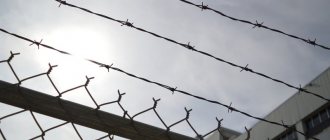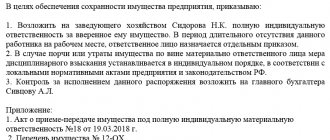Child crimes are considered a rather ambiguous phenomenon, which are considered by the court for a long time to take into account as many factors as possible. The responsibility of parents for children’s offenses is always determined, since according to accepted norms of law and morality, it is representatives of minors who must understand that they were the ones who were obliged to prevent and prevent the very fact of the offense. Regulatory legal acts provide for special penalties for the mother and father of a child who has committed crimes, which requires additional consideration of this position of the state in relation to child crimes.
Who is responsible for the child?
Persons responsible for the actions of minors are specified in the Civil Code of the Russian Federation:
- parents;
- guardians;
- trustees;
- employees of organizations for children left without representatives;
- medical personnel of clinics and other health care institutions where a minor is being treated;
- employees of educational organizations where the child is studying;
- other persons whose duties include supervising minor citizens - if the unlawful act occurred during the period of supervision.
After the age of 16 and until reaching adulthood, the child bears independent responsibility for illegal actions. However, if there are no means to compensate for the harm caused, the responsibility to satisfy legal claims extends to the parents or guardians.
Important: the responsibility of the mother and father remains even if they have been deprived of parental rights - compliance with this rule is relevant for a three-year period after the relevant court decision is made.
According to the legislative authorities, the desire of a minor to commit illegal acts is primarily due to improper upbringing. That is, it was the parents’ position towards their own child before the deprivation of their rights that became the reason for the minor to commit an illegal act - it was as a result of the wrong actions of the representative that a tendency towards antisocial behavior was formed.
During the period of a child’s stay in educational, supervisory, medical or other institutions of a similar nature, employees of these organizations bear responsibility for them. In the case of minors committing unlawful acts, authorized persons are found guilty and are subject to certain penalties for improper performance of assigned duties.
For example, if a student of an educational institution decided to skip school, and at that time he committed theft from a store, educational workers are considered responsible. Failure to comply with the established regulations is considered a violation. Thus, if a student is absent, teachers must notify parents or law enforcement. The same obligation is assigned to employees of a kindergarten, entertainment center, etc.
However, in some situations, the administration of the institution can avoid liability if it proves that the unlawful act was committed in connection with the poor upbringing of the child. Then the fulfillment of claims for damages falls on the parents.
Conditions for the onset of civil liability of minors
annotation
.
The article is devoted to the analysis of the legal aspects of civil liability of minors. The author characterizes the conditions under which such liability occurs, and also examines the persons responsible for the obligations of minors and minors. Key words
: minors, minors, civil liability, civil legislation, causing harm. Before we talk about the conditions necessary for the onset of civil liability for a minor, it is necessary to understand which persons, according to the law, should be classified as minors.
Thus, according to the Civil Code of the Russian Federation, there are the following categories of persons who are recognized as minors: - young children under 6 years of age; — young children from 6 to 14 years old; - minors from 14 to 18 years old. [1]
The legislator makes this division not by chance: after all, for each of the above age categories there is its own scope of rights - the ability to make transactions and take responsibility for one’s actions. Thus, the very first category - minors under 6 years old, are completely incompetent: all decisions are made for them by their parents or other legal representatives, and are also responsible for their actions.
The next group – from 6 to 14 years old, is represented by persons “partially capable”. Such persons have the right to carry out small household transactions (for example, buying groceries in a store), but their representatives are also responsible for all their actions.
And finally, persons from 14 to 18 years of age are, from the point of view of civil law, capable of transactions, and also have delictual capacity. This means that they are independently liable with their property for transactions made. This rule is enshrined in paragraph 3 of Art. 26 Civil Code of the Russian Federation. [4] An important feature here is that a minor bears responsibility both for transactions made by him independently, and for those for which he received the written consent of his legal representative. Thus, the defendant in court regarding transactions of a minor will always be himself. At the same time, the law provides for cases when, for example, the property of a minor is not enough to compensate for the harm caused to him. Here, legal representatives are already assigned subsidiary (additional) responsibility.
Civil law names the following conditions for applying civil liability measures to a violator: - if a person has committed an unlawful act; - damage or loss was caused; - the presence of guilt in the act, as well as a cause-and-effect relationship between the act and the resulting consequences.
If we consider the types of harm, then the Civil Code of the Russian Federation means any harm: caused to life or health, in relation to property, moral, as well as harm caused by one offender or a group of persons. If we are talking about harm caused to minors, then it is important to note that not only the actions of a minor, but also the inaction of his legal representatives in raising the minor, which led to the onset of socially dangerous consequences, should be recognized as unlawful.
Let us consider in more detail the conditions for the liability of a minor for the harm caused by him. As noted above, the law provides for minors general grounds for liability for transactions they have made, on the basis of paragraph 1 of Art. 1074 Civil Code of the Russian Federation. However, in the event of insufficient property of a minor, the legal representatives of the minor tortfeasor bear additional liability to the victim in part.
We also said earlier about the responsibility of parents for inaction, which consists in their failure to fulfill their duties in raising and supervising children. [5] It should also be noted here that not only legal representatives are responsible for the unlawful actions of a minor, but also those institutions in which minors are placed (educational, medical, social protection, etc.). But since the duty of these institutions is to supervise children only while the child is in them, the law cannot impose subsidiary liability on them to the victim, as on parents, for example.
Among the important features of the tort we are considering, we should highlight the termination of the additional liability of the representative to the victim if the child has reached the age of majority. But this is not the only case: the obligation to compensate for harm is removed from legal representatives if the minor has sufficient income or other property that is sufficient to fully compensate for the harm, as well as if the minor acquires full legal capacity (emancipation).[6 ]
The law also provides for cases of harm caused by a group of minors. The principle of joint liability of minors already applies here, according to Art. 1080 Civil Code of the Russian Federation. As for the legal representatives, they are assigned share responsibility in proportion to the degree of their guilt.
In our opinion, the issue of liability of minor entrepreneurs deserves special attention. According to the current Civil Code of the Russian Federation, the right to engage in entrepreneurial activity for a minor begins at the age of 14.[2]
This gives grounds to highlight the following situations: Acquisition of full legal capacity by minors under 18 years of age due to their engagement in entrepreneurship. In this case, the minor is completely independent in his actions, and compensates for the damage caused without the participation of legal representatives. The peculiarity of an entrepreneur’s liability is that for it to occur, the presence of the subject’s guilt is not necessary (it was noted above that guilt is one of the conditions for the onset of civil liability). This rule regarding business activities is reflected in Art. 401 Civil Code of the Russian Federation. The principle of fulfillment of obligations as a result of a concluded contract applies here. So, if an entrepreneur has not fulfilled those obligations that are associated with his activities, then he will be held responsible for this. However, liability does not arise if it is proven that the fulfillment of obligations has become impossible due to the occurrence of emergency circumstances. [3]
Let us also note the specifics of entrepreneurship: the activity itself involves the conclusion of a large number of different contracts, but due to the partial legal capacity of a minor, he can conclude a significant part of the contracts only with the written consent of his legal representatives. This circumstance means that if the property of a minor entrepreneur is insufficient, additional responsibility for his actions will be assigned to the parents, according to the rules of Art. 1074 Civil Code of the Russian Federation.
In conclusion, let's make a few conclusions. In our opinion, the institution of civil liability of minors in Russia today has not received proper development. This is due to several reasons.
Firstly, minors, as a rule, do not have their own income: in Russia there is no established practice for employing persons under 18 years of age. Thus, the minor’s income will either be unofficial, which will not give the court the opportunity to foreclose on it (since it simply does not exist “on paper”, and no one “knows” about it), or will be completely absent (with rare exceptions when the minor receives certain social benefits).
Secondly, the system of entrepreneurial activity has not been sufficiently developed and established, and therefore the institution of minor entrepreneurs for our country is new and unexplored. Therefore, often the provisions of the Civil Code of the Russian Federation on compensation for damage with the “property of a minor” turn out to be unworkable, and the damage is, as a rule, compensated by the parents. This circumstance leads to the fact that a minor in this case will not be able to realize the wrongfulness of his act, which leads to impunity in the future, and makes the institution of civil liability of minors formal.
Bibliography
1. Civil law. T. 1.: Textbook / Ed. G. N. Chernichkina. - M.: RIOR: INFRA-M, 2013. - pp. 45–46. 2. Civil law: textbook: in 3 volumes. T. 1 / E. N. Abramova, N. N. Averchenko, Yu. V. Baigusheva [and others]; edited by A. P. Sergeeva. - M.: TK Welby, 2008. - P. 148. 3. Civil law: textbook / edited. ed. M. V. Karpycheva, A. M. Khuzhina. - M.: INFRA-M, 2014. - P. 38. 4. Civil law. T. 1.: Textbook / Ed. G. N. Chernichkina. - M.: RIOR: INFRA-M, 2013. - P. 47. 5. Ruzanova E. V. Issues of improving legislation in the field of obligations resulting from causing harm with the participation of minors: questions of theory and practice // The Power of the Law. - 2015. - No. 4 (24). — P. 114. 6. Saprykin K. N. Responsibility of legal representatives under civil and family legislation of the Russian Federation: monograph / K. N. Saprykin. - M.: UNITY-DANA: Law and Law, 2015. - P. 69.
Parental responsibilities
In order to understand when a child’s legal representatives have an inappropriate attitude towards his upbringing, it is worth clarifying the positions that they must fulfill in accordance with the norms of the Family Code of the Russian Federation:
- personal participation in the development and education of one’s own child;
- the use of educational methods that do not contradict the law, the interests of children and their safety;
- promoting the successful psychological, physiological and spiritual development of the child;
- creation of conditions necessary for the full provision of minors;
- protecting the rights of the ward in courts and other institutions where the participation of a representative is necessary.
In fact, parents are obliged to promote the comprehensive development of the child, support and guide him in difficult situations, and explain what is good and what is bad. Therefore, if a minor violates the established norms of the law and society, his mother and father will be primarily responsible, because antisocial behavior is a consequence of their actions or inaction.
Representation of minors in court
By law, parents or guardians can represent the interests of children in court, regardless of the type of legal proceedings (Article 64 of the RF IC). For example, to be a representative of a person brought to administrative responsibility. In criminal or administrative proceedings, the responsible person has the right to:
- give explanations regarding the offense;
- get acquainted with the case materials;
- expressing comments on the content of the protocol.
- file motions and challenges.
Bringing parents to criminal liability for the actions of a child
In accordance with Art. 20 of the Criminal Code of the Russian Federation, a minor can be held accountable for a criminal act on a general basis, starting from the age of 16 . However, if he commits a particularly serious crime, penalties can be implemented from the age of 14 . Such illegal acts include:
- murder committed intentionally;
- participation in terrorist activities;
- committing violent acts of a sexual nature;
- intentional infliction of grievous bodily harm;
- stealing someone else's property.
, maximum penalties are not applied 
When making a decision, the court takes into account the following factors:
- accommodations;
- family relationships;
- features of upbringing;
- availability of education and degree of mental development;
- physiological and psychological state;
- The child’s sanity is also assessed, for which the latter must undergo a forensic medical examination.
During interrogation, as well as during court proceedings, the presence of legal representatives is required. As practice shows, children who have committed a criminal offense are raised in conditions where parents simply do not pay attention to the life and interests of their children. In such cases, the mother and father face liability under Art. 156 of the Criminal Code of the Russian Federation , according to which the following positions are provided as collection tools:
- imposing a fine in the amount of 100 thousand rubles or taking into account the parent’s income for the last year;
- work: mandatory - up to 440 hours, executive - up to 24 months, forced - up to 36 months;
- in especially severe cases, imprisonment for up to 3 years is provided.
Among other things, representatives of a minor violator of the law must compensate for all damage caused to the injured party. Moreover, not only damage caused to the property or health of the victim, but also the moral aspects of the issue are subject to compensation.





